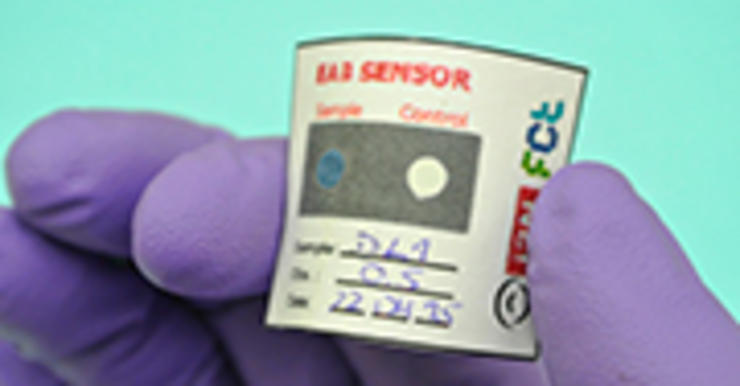24-04-2015

The teams of two of FCT-UNL’s research centers, the CENIMAT (Materials Research Center) and the UCBIO (Biomolecular Applied Sciences Unit), led respectively by Professor Elvira Fortunato and Professor Carlos Salgueiro, created a paper sensor that detects within minutes the bacterium Geobacter sulfurreducens .
These bacteria are capable of generating electrical current when in contact with the electrodes of a battery, and eliminate toxic or radioactive metals such as uranium and chromium. This means that can be used both for development of the microbial fuel cells batteries, and for new ways of treating domestic or industrial waste water. The developed sensor operates similar to a pregnancy test, since the contact of the sensor with this type of bacteria causes a color change into the blue color and has a very low unit cost (about four cents) that will be even less if thousands of these sensors are produced.
The work developed in these two research centers was already highlighted in the journal Scientific Reports belonging to the same group of the known journal Nature. (http://www.nature.com/srep/2015/150413/srep09910/full/srep09910.html)